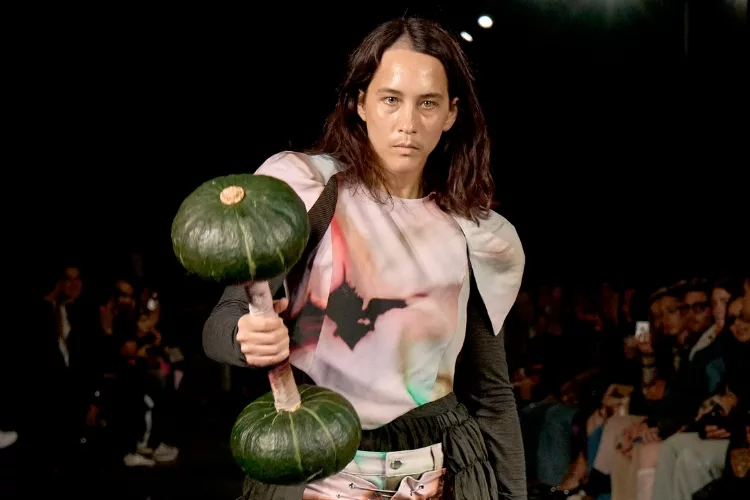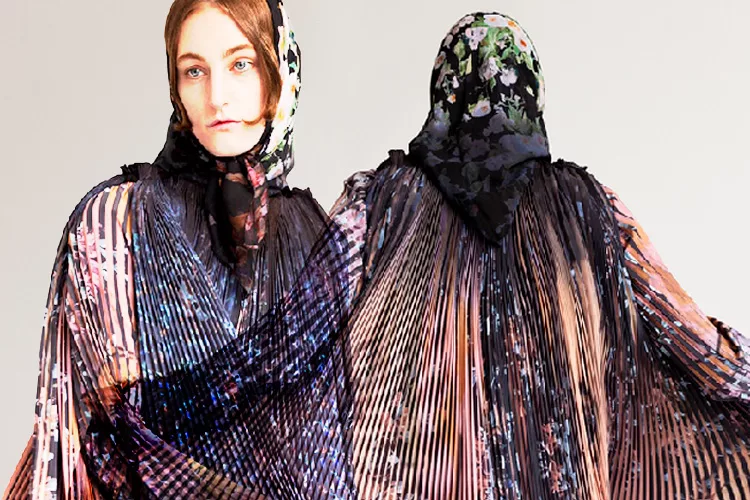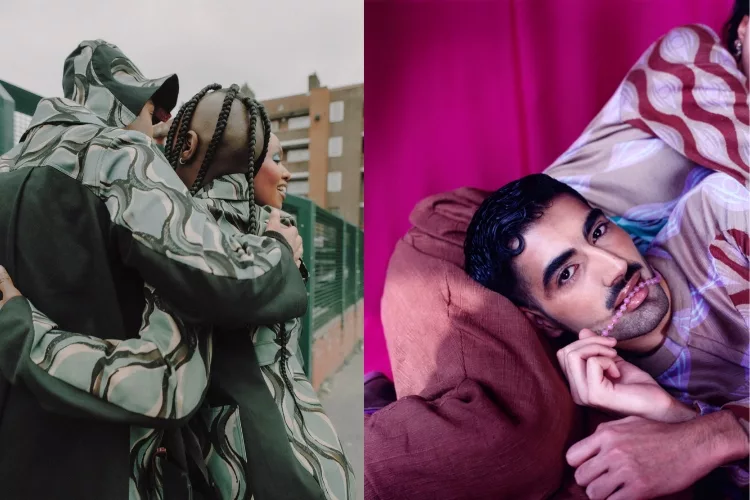We love Copenhagen Fashion Week. It’s the only fashion week that requires 18 Minimum Responsibility Standards to be met by brands. These includes no single-use plastic and producing collections from at least 50 per cent certified recycled, upcycled or deadstock materials. So we like to take note of their NEWTALENT roster – a group poised to become the established brands of the next generation.
CPHFW NEWTALENT was established by Copenhagen Fashion Week to nurture, develop, and promote emerging Nordic talent on a global scale. It gives new opportunities for three to four emerging designers per season via monetary support, mentorships, partnership offerings, professional advisors, onboarding to the official Copenhagen Fashion Week show schedule, event participation, showroom activations, alumni network, and extensive PR through Copenhagen Fashion Week’s international community and channels.
Alectra Rothschild / Masculina
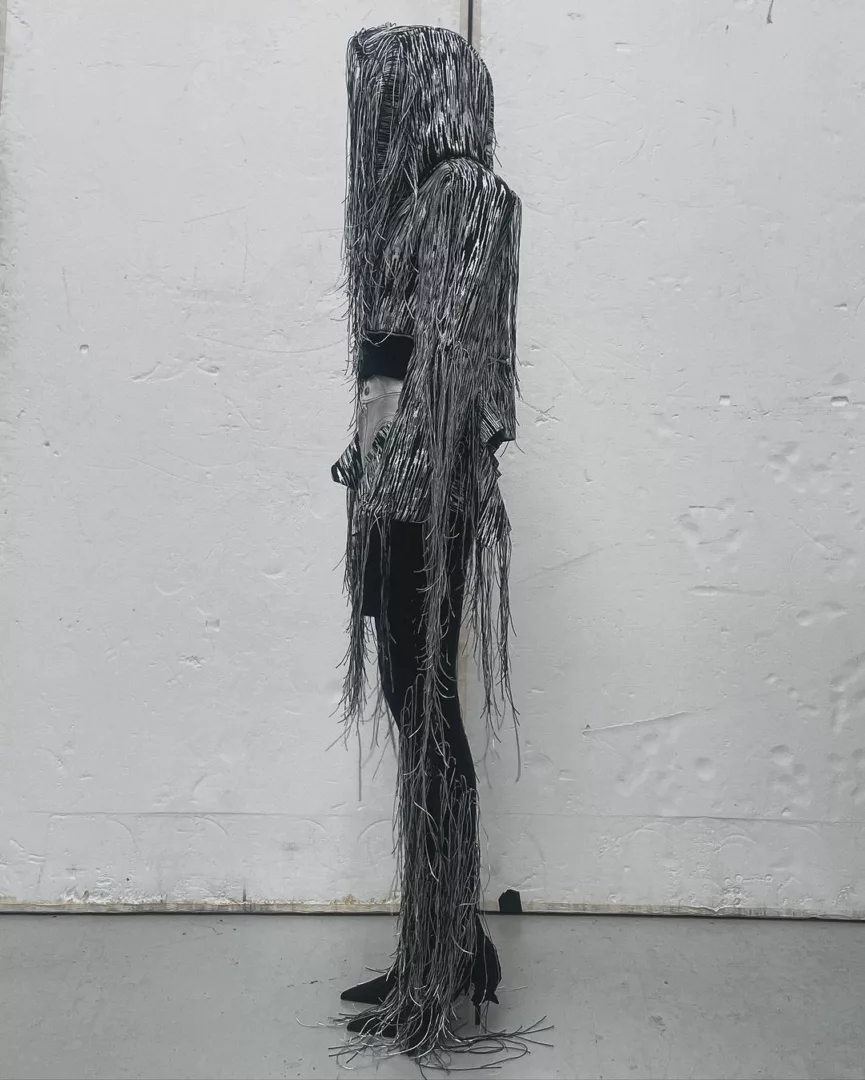
Alectra Rothschild is the creative force behind the Danish clothing brand Masculina, known for its emphasis on craftsmanship, femininity, and high glamour. Rothschild, a trained tailor, pursued her education at Beckmans College of Design and Central Saint Martins under Fabio Piras, furthering her knowledge in sustainability and fashion at The Royal Danish Academy.
Her brand is distinguished by its commitment to sustainability and innovative design. Rothschild has developed a zero-waste technique that accommodates a variety of body types, showcasing her dedication to inclusivity and environmental responsibility. The majority of Masculina’s garments are either upcycled from previously owned clothing or textiles or are made from deadstock materials. This approach reflects a conscious effort to reduce waste and promote sustainable fashion practices.
Her work has been recognized for its unique blend of historical and contemporary influences, creating a distinctive style that has garnered attention on the global stage.
Nicklas Skovgaard
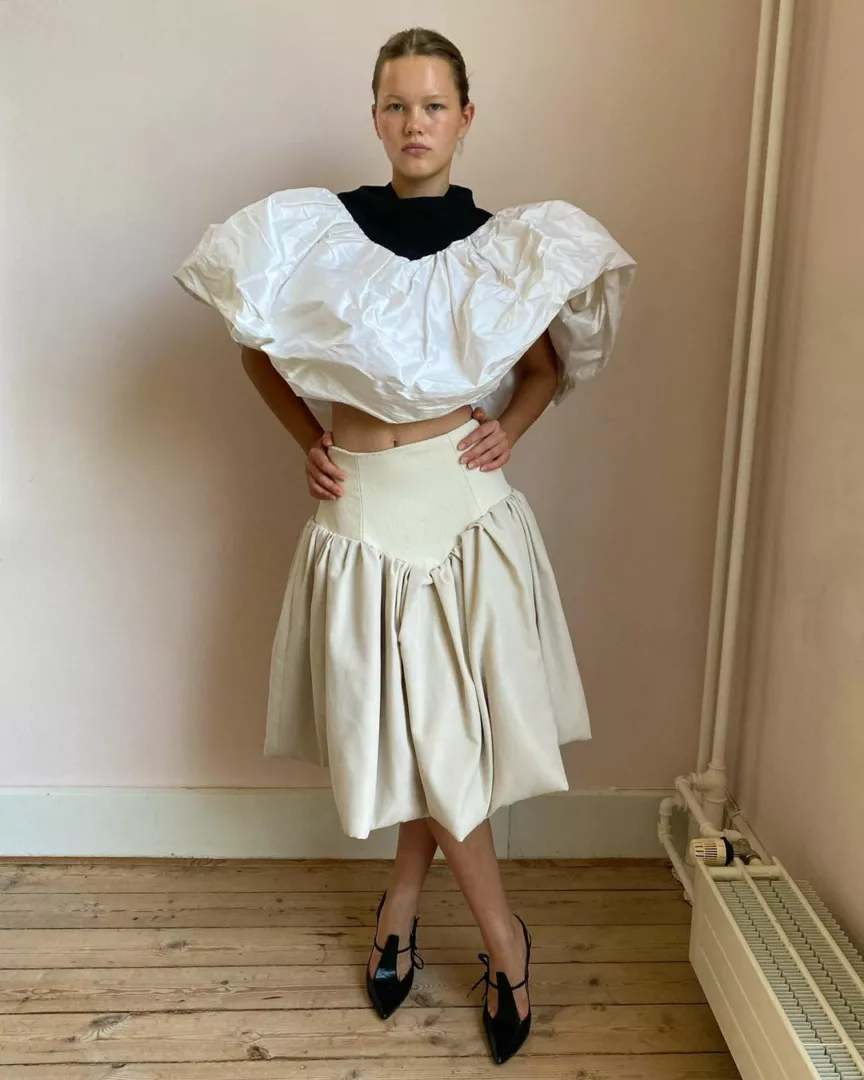
Last season Nicklas Skovgaard wowed the fashion world with his debut runway show, and presentation that featured only one model — Amsterdam-based performance artist Britt Liberg. The drama of the show worked well with his clothes.
A Copenhagen-based designer, Nicklas founded his luxury womenswear brand in 2020. It’s known for its unique approach to textiles, aiming to express narrative through the marriage of unexpected materials and classical forms. Skovgaard, who taught himself weaving, creates his own textiles, blending hand-woven wool with water-repellent fabrics or silk taffeta with stretch jersey. His designs, which often feature hand-crafted textiles and unexpected silhouettes, reflect a blend of history, pop culture, and personal memories. His collections, constructed twice a year, build upon each other, evolving over time and showcasing a mix of romanticism and realism
Rolf Ekroth
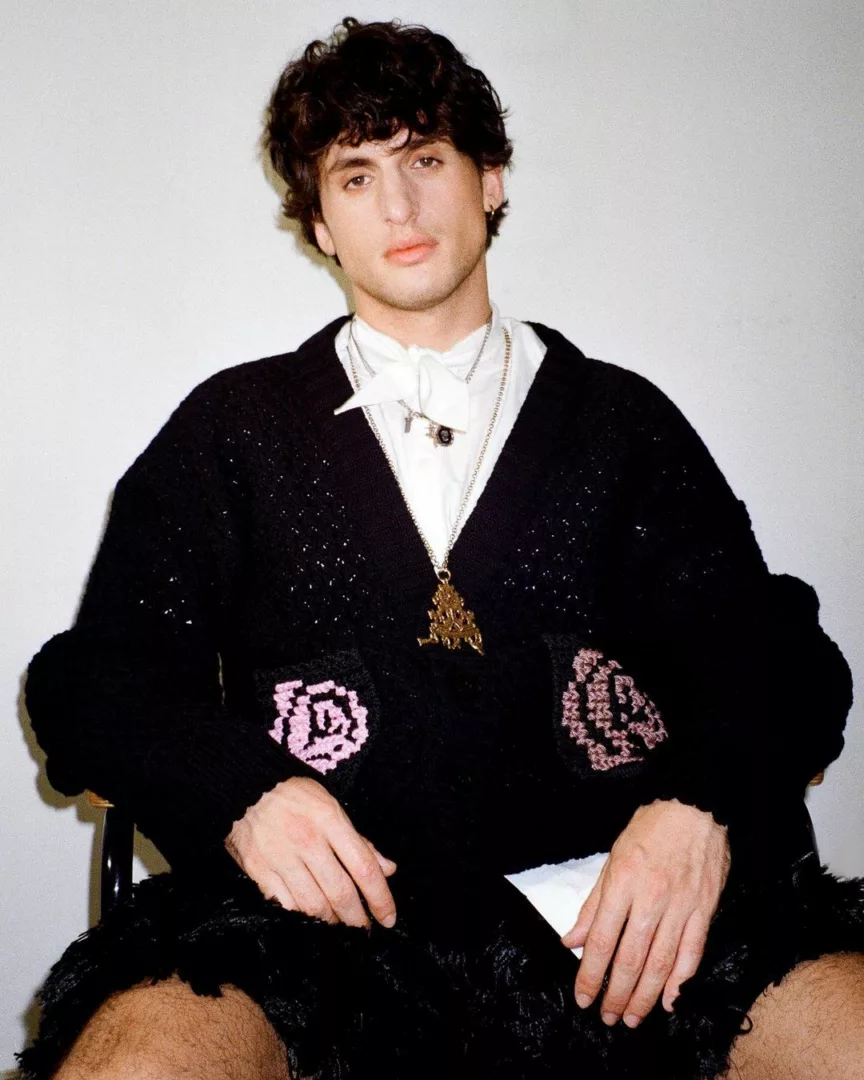
Rolf Ekroth, a Finnish fashion designer, has gained recognition for his unique approach to fashion, which often blends traditional Finnish heritage with modern, streetwear-influenced aesthetics. His designs are known for their thoughtful storytelling and cultural references.
Sustainability is a key element in Ekroth’s design philosophy. He often incorporates sustainable materials and practices into his collections, reflecting a commitment to environmental responsibility. This may include the use of organic or recycled fabrics, as well as sustainable production methods. Ekroth’s approach to sustainability also extends to a consideration of the lifecycle of his garments, aiming to create pieces that are long-lasting and versatile.
Stamm
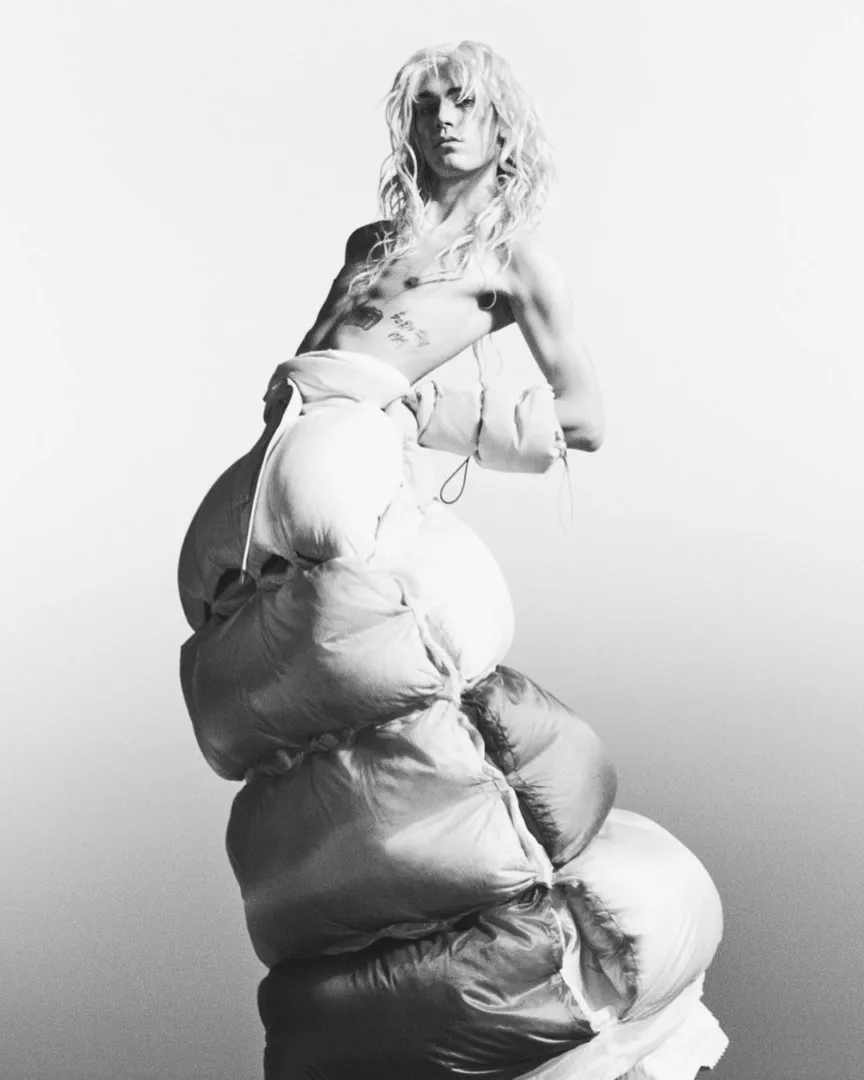
Elisabet Stamm caught our eye last season. The winner of the Zalando Sustainability Award last season, STAMM’s vibe is youthful and energetic.
Elisabet calls unique design ethos ‘truck poetry’, as it reflects her vibrant personality and globetrotting background. This approach is marked by striking dualisms: strength meets sensitivity, high fashion pairs with a low-key vibe, and trucks vs couture. Her designs are a narrative of her life’s diverse experiences and cultural encounters.
Central to Elisabet’s brand is the concept of ‘exchange’, stemming from her belief in the power of diverse conversations in shaping her creations. This principle extends beyond just a brand name; it encapsulates her philosophy of intertwining different elements in her work, symbolizing the beauty in contrasts.
In Elisabet’s world, fashion is a dialogue, a meeting point of varied ideas and aesthetics. Her ‘truck poetry’ is not just a style but a celebration of this harmony, showcasing how opposing elements can coexist beautifully in the dynamic world of fashion.
–Oliver Sackett
Related Articles

